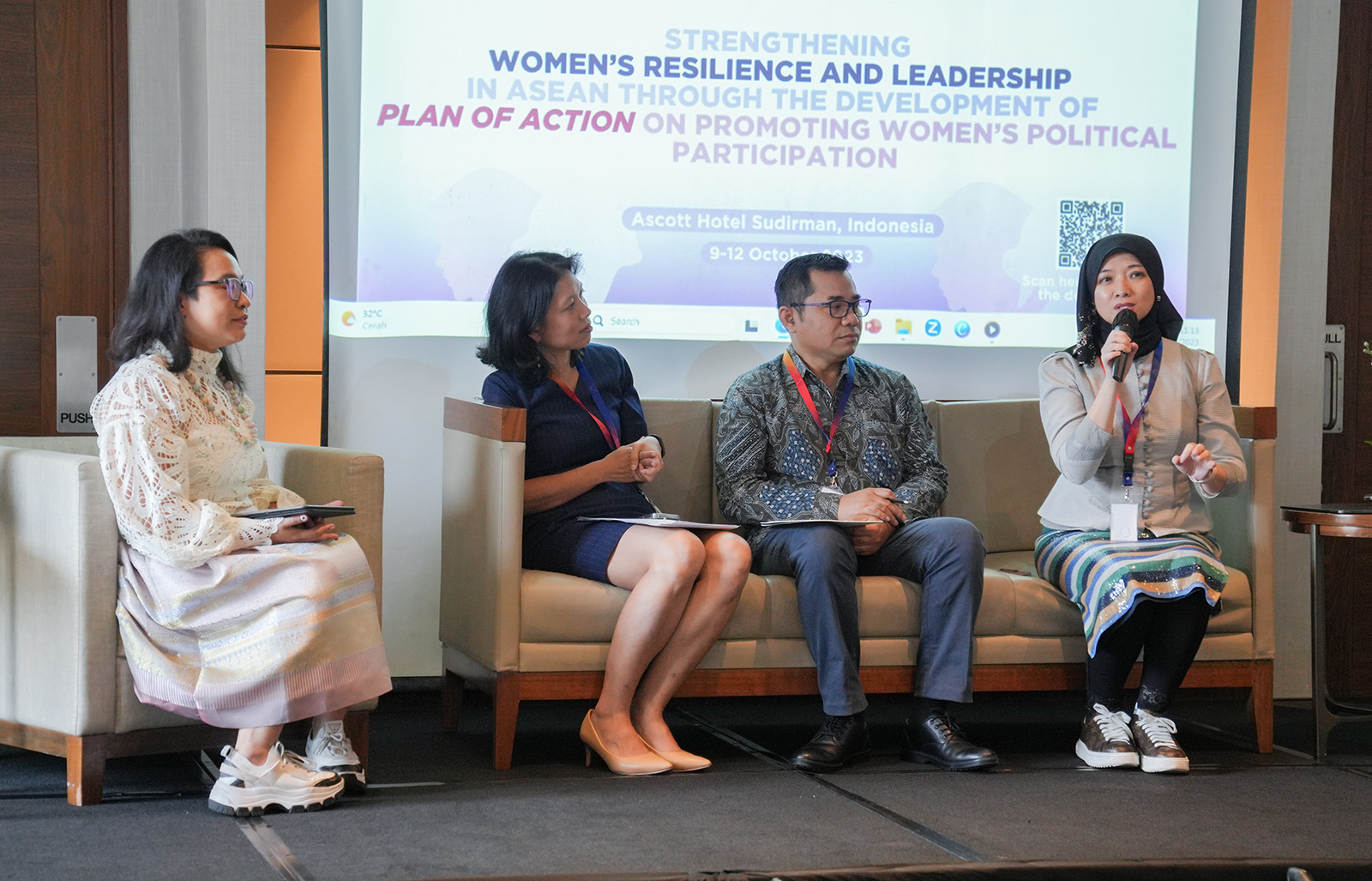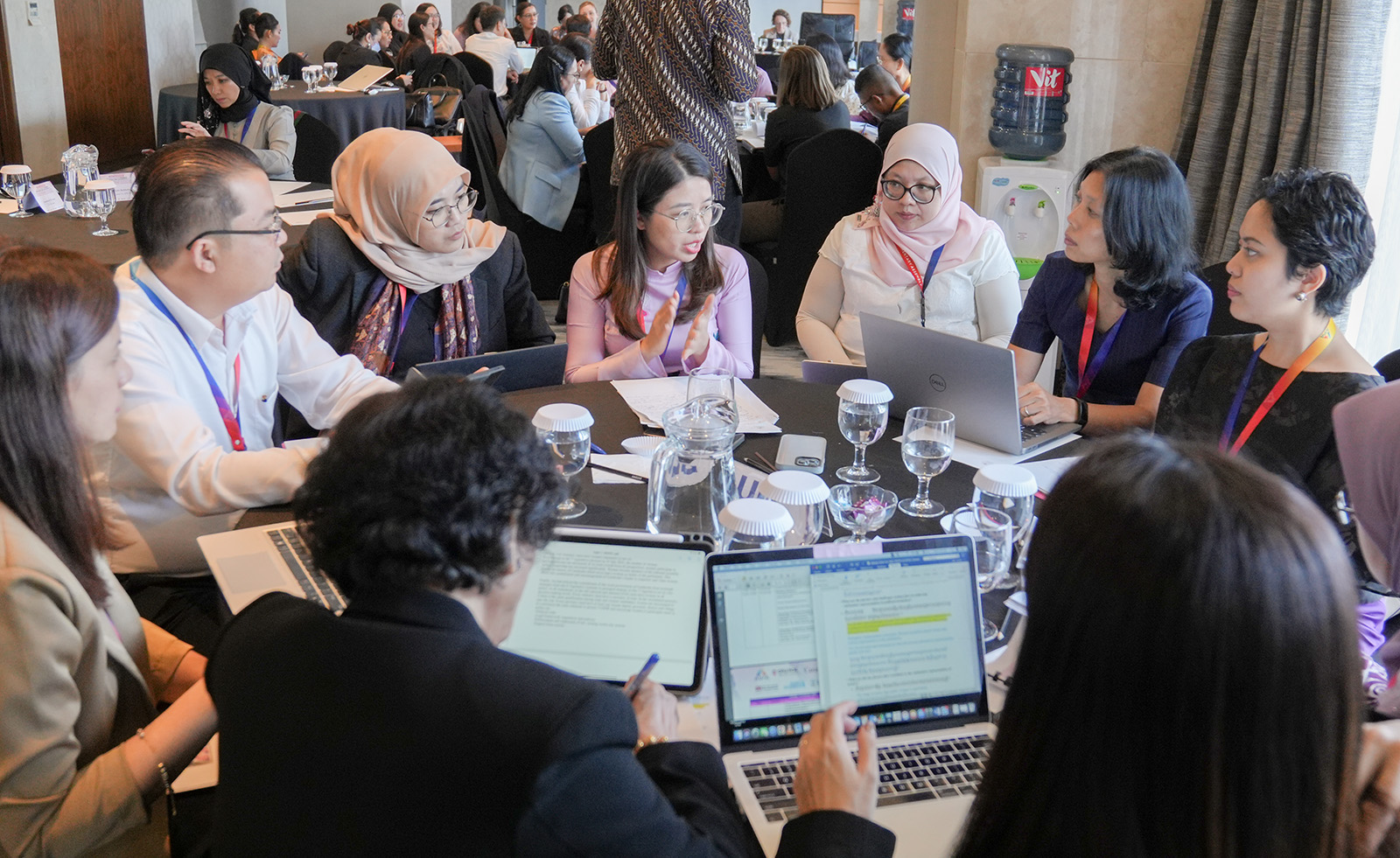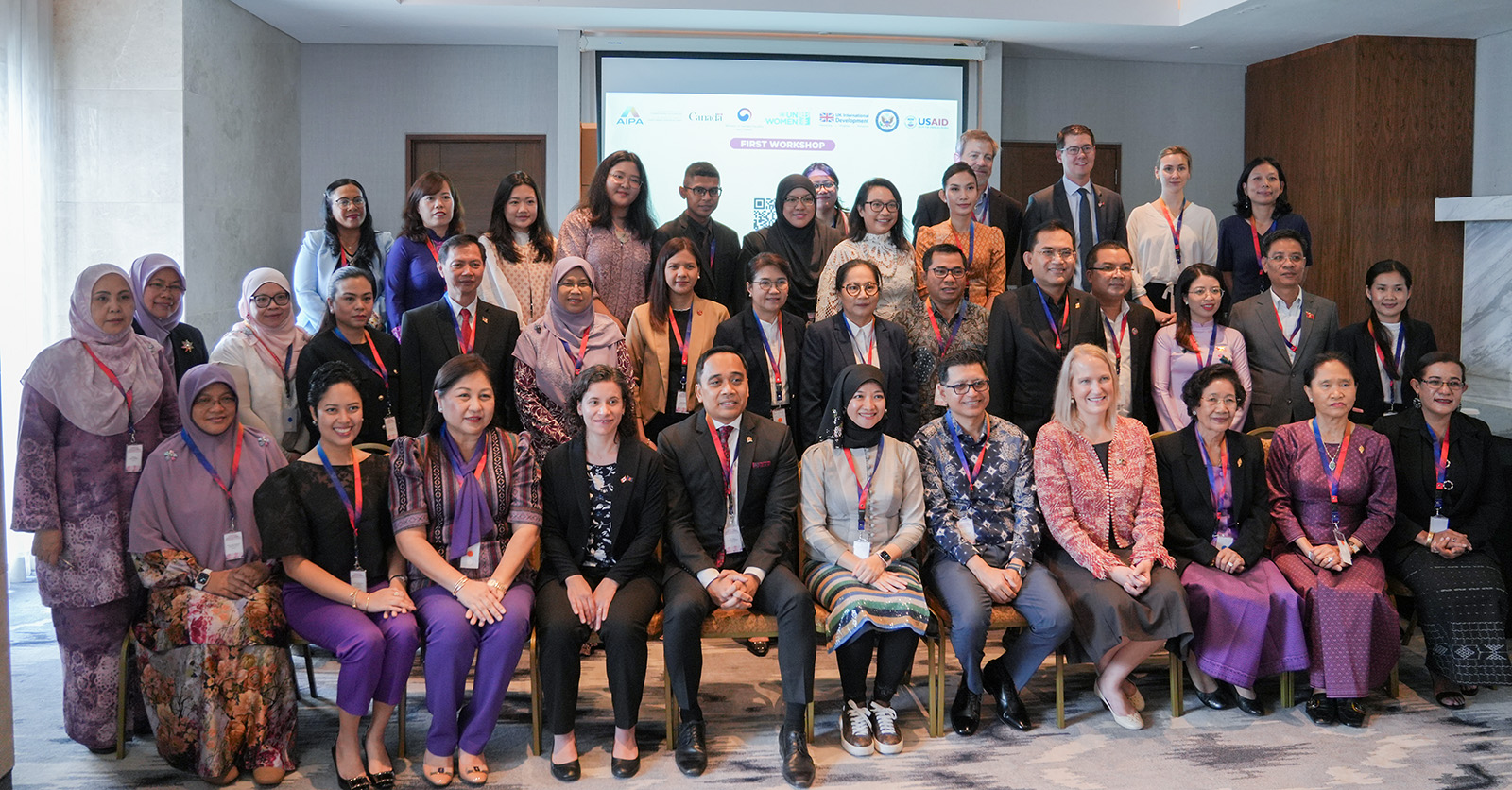South-East Asian MPs map out steps to strengthen women’s leadership and participation in policy decision-making
Date:
Author: Inggita Notosusanto

Jakarta, Indonesia – The ASEAN Inter-Parliamentary Assembly (AIPA) has recommended a series of steps for the Association of Southeast Asian Nations (ASEAN) and its 10 Member States to strengthen the representation and impact of women in policy decision-making.
The Women Parliamentarians of AIPA drafted a Plan of Action on Promoting Women’s Political Participation for further consultation that included:
- increasing both the number and the “substantive representation” of women in politics
- promoting an environment that enables women to participate and take leadership roles in politics
- promoting gender-responsive parliament and policy decision-making processes
Members of Parliaments from seven ASEAN Member States attended the workshop to develop the Plan of Action in Jakarta on 10-11 October. The AIPA Secretariat organized the workshop with the support of the Canada Fund for Local Initiatives (CFLI) and the United States Agency for International Development (USAID). The event was also part of UN Women’s project, Empowering Women for Sustainable Peace: Preventing Violence and Promoting Social Cohesion in ASEAN supported by the Government of Canada, the United Kingdom and the Republic of Korea.
The AIPA serves as the centre of communication to increase understanding, cooperation, and close relations among the national parliaments of ASEAN Member States.
In ASEAN Member States, the number of women in national parliaments increased from 12 per cent in 2000 to 22 per cent in 2022. Although this was below the global average of 26.7 per cent, it was largely in line with the global trend of women’s representation doubling in the last 20 years.
In ASEAN, Viet Nam, Singapore and the Philippines outperformed the global average. In Timor-Leste, which will soon become the 11th member of ASEAN, women hold over 40 per cent of seats in the country’s parliament and many of them are under the age of 45.

Workshop participants said that despite the clear progress, women still face a long journey ahead.
“Increased number of women in parliament brings a unique perspective and insight, leading to a more effective policy outcomes. However, mere presence of women in parliaments does not automatically translate to implementation to gender-responsive policies,” said Siti Rozaimeriyanty Dato Haji Abdul Rahman, the AIPA Secretary General.
Ms. Ryce Chanchai, ASEAN Governance and Women, Peace and Security Regional Programme Lead of UN Women, said efforts must go beyond simply increasing the number of women in parliament and focus on substantive representation – the extent to which elected representatives can actually shape policies that lead to more equitable and inclusive societies.
She highlighted the essential connection between advancing women’s political participation and the women, peace and security agenda adopted by ASEAN. For meaningful participation of women in decision-making, women and their perspectives must be included in efforts to promote peace and address non-traditional security challenges such as climate security, disasters and pandemics.
Mr. Jamshed Kazi, UN Women Indonesia Representative and Liaison to ASEAN, said several South-East Asian countries have national policies and legislation that can be used to accelerate progress, including quotas and “special temporary measures” to ensure women’s representation, and gender-responsive budgeting to ensure that budgeting and spending take into account the different needs of women and men. He added, “It is important to recognize the gender and social norms that hinder women from attaining leadership positions and break down the barriers preventing a broader diversity of women from representing and to better reflecting the population they serve.”
During the workshop, the parliamentarians shared experiences from their respective countries regarding women’s leadership and political participation. The insightful presentations began with Hon. Cedelizia Faria Dos Santos, Member of Timor-Leste National Parliament, followed by Hon. Ysabel Maria Zamora of the House of Representatives of the Philippines, Hon. Dato Mumtaz of the Parliament of Malaysia, Hon. Dinh Ngoc Quy of the National Assembly of Viet Nam, Hon. Ma. Cynthia Chan of the House of Representatives of the Philippines, and Hon. Putu Supadma Rudana of the House of Representatives of Indonesia.
Throughout the two-day event, the parliamentarians and other participants emphasized the need to create environments that enable women to participate in politics free from violence. They said that violence against women during elections, both physical and psychological, remains significant and may discourage both current representatives as well as women wanting to run for office. They said they need more men, both in and outside of parliaments, to advocate for a safer environment for women.
The workshop also discussed the need to ensure that youths and women with disabilities are able to participate in politics.
